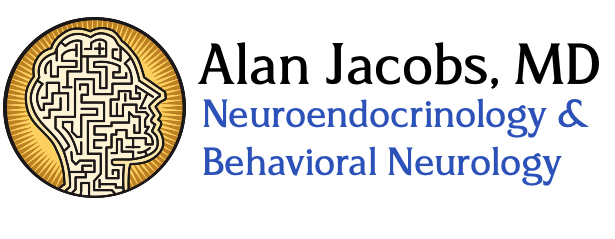Several studies over the past decade, for example, from Dokras, Anuja et al. in Fertility and Sterility in 2012 and 2018, have shown that women with polycystic ovarian syndrome (PCOS) are at higher risk for anxiety disorders, compared to women without PCOS.
One study found 5 times as many women with PCOS having generalized anxiety symptoms compared with controls (prevalence – 20% vs. 4%) and a nearly sevenfold increase in the risk of generalized anxiety symptoms in women with PCOS (pooled odds ratio, 6.88). They also found studies showing a higher prevalence of social phobia in women with PCOS and showing a higher percentage of obsessive compulsive disorder in women with PCOS.
These studies have questioned the reason for this association and suggested age, body mass index, increased testosterone levels and hirsutism may be involved.
Neuroendocrinology provides a nice framework to understand why anxiety is more prevalent in women with PCOS. PCOS is medically defined as “chronic hyperandrogenic oligo-ovulation.” This translates to women being continuously stuck in the first week of their menstrual cycles due to elevated androgens, like testosterone, mucking things up in the ovary and preventing them from progressing to ovulating, except for once in a while. This then leads to a hormonal environment in the brain consisting of relatively normal levels of estrogen, but no progesterone. If there is no ovulation, there is no progesterone production.
Estrogen excites brain cells and brings energizing and then anxiety provoking effects and can even bring epileptic seizures in women predisposed to seizures. Progesterone is relaxing, anti-anxiety in its properties, and will prevent seizures in women with catamenial epilepsy. I have described estrogen and progesterone’s relationship as like “yin/yang” in its effects on the brain and behavior.
Therefore, the brains of women with PCOS spend weeks or months bathed in “unopposed estrogen”, and if their brains are, for various reasons, sensitive to the emotional modulating effects of estrogen and progesterone, this brings anxiety, irritability and mood volatility. The good news is that treatment with natural progesterone counters this estrogen effect and brings soothing, calming relief when standard anti-anxiety medications won’t.

